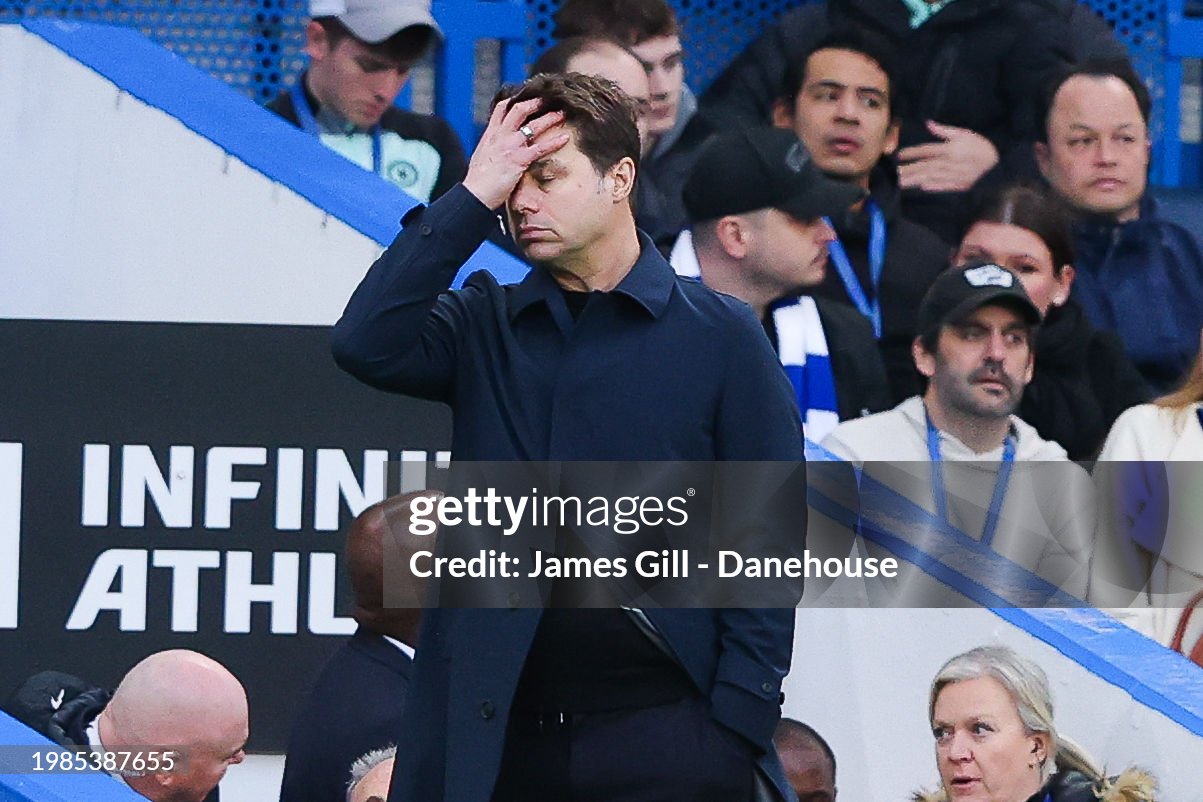The call for José Mourinho was heard cautiously at Stamford Bridge on Sunday following Chelsea's painful home defeat to Wolverhampton Wanderers (2-4). Manager Mauricio Pochettino doesn't seem to be in immediate danger of losing his position, but did acknowledge after the match that what his team showed was not good enough.
Chelsea's recent performances have cast a shadow over Stamford Bridge, a stark contrast to the high standards the club has maintained over the past two decades.
Conceding four goals in consecutive Premier League matches, first in a 4-1 defeat at Anfield and then against Wolverhampton Wanderers, has raised serious concerns. This pattern of conceding multiple goals isn't new for Chelsea this season, as similar outcomes were seen in November against Manchester City and Newcastle United. The gravity of the situation is underscored by the fact that the last time Chelsea found themselves in such a predicament was back in 1989.
These results have understandably led to frustration and disappointment among the fans, culminating in boos echoing through Stamford Bridge. Some supporters even went as far as to echo the sentiments of Wolverhampton Wanderers' fans, labeling Chelsea's performance as poor. A notable section of the crowd called for the return of José Mourinho, the architect of three of Chelsea's six league titles, highlighting their longing for past glories and a turnaround in fortunes.
Mauricio Pochettino, Chelsea's current manager, is acutely aware of the mounting pressure and fan dissatisfaction. In the aftermath of the defeat to Wolves, he did not mince words, acknowledging the team's underperformance. "We are not good enough, that's the reality. Including myself," he admitted, reflecting a sense of accountability for the team's current struggles. Pochettino didn't escape the responsibility, emphasizing that both he and the players must bear the burden of Chelsea's historic reputation, which is currently not being upheld.
Pochettino's approach to this crisis is one of resilience and determination to improve. He urged the need for self-criticism and a refusal to surrender to the current challenges. His message was clear: the team must work harder and find new ways to overcome their struggles. The implication is that a change in approach or tactics might be necessary if the current methods continue to falter.
Amidst the turmoil, Pochettino called for the support of the fans, understanding their expectations and acknowledging that the team is not meeting them due to various circumstances. He expressed his gratitude to those who stayed until the end of the match, recognizing their right to express their disappointment.
Facing calls for his dismissal, Pochettino confronted the situation with a human touch. He admitted that the current scenario is far from pleasant but emphasized that such challenges are part and parcel of football, especially at a high-profile club like Chelsea where expectations are always sky-high. His focus remains on bolstering the players' morale, encouraging them to be courageous and fight their way out of the current slump, fully aware that they too are feeling the weight of the situation.
In summary, Chelsea's current plight is a multifaceted issue involving on-field performance, historical standards, fan expectations, and managerial responsibility. Pochettino's leadership is being tested, and how he navigates this storm with his young squad will be crucial in determining Chelsea's trajectory in the near future.








